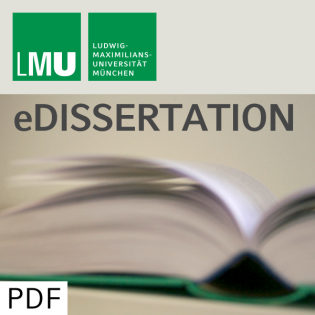
Measurement-based quantum computation with cluster states
Beschreibung
vor 21 Jahren
In this thesis we describe the one-way quantum computer (QCc), a
scheme of universal quantum computation that consists entirely of
one-qubit measurements on a highly entangled multi-particle state,
the cluster state. We prove universality of the QCc, describe the
underlying computational model and demonstrate that the QCc can be
operated fault-tolerantly. In Chapter 2 we show that the QCc can be
regarded as a simulator of quantum logic networks. In this way, we
give the universality proof and establish the link to the network
model, the common model of quantum computation. We also indicate
that the description of the QCc as a network simulator is not
adequate in every respect. In Chapter 3 we derive the computational
model underlying the one-way quantum computer, which is very
different from the quantum logic network model. The QCc has no
quantum input, no quantum output and no quantum register, and the
unitary gates from some universal set are not the elementary
building blocks of QCc-quantum algorithms. Further, all information
that is processed with the QCc are the outcomes of one-qubit
measurements and thus processing of information exists only at the
classical level. The QCc is nevertheless quantum mechanical as it
uses a highly entangled cluster state as the central physical
resource. In Chapter 4 we show that there exist nonzero error
thresholds for fault-tolerant quantum computation with the QCc.
Further, we outline the concept of checksums in the context of the
QCc which may become an element in future practicable and adequate
methods for fault-tolerant QCc-computation.
scheme of universal quantum computation that consists entirely of
one-qubit measurements on a highly entangled multi-particle state,
the cluster state. We prove universality of the QCc, describe the
underlying computational model and demonstrate that the QCc can be
operated fault-tolerantly. In Chapter 2 we show that the QCc can be
regarded as a simulator of quantum logic networks. In this way, we
give the universality proof and establish the link to the network
model, the common model of quantum computation. We also indicate
that the description of the QCc as a network simulator is not
adequate in every respect. In Chapter 3 we derive the computational
model underlying the one-way quantum computer, which is very
different from the quantum logic network model. The QCc has no
quantum input, no quantum output and no quantum register, and the
unitary gates from some universal set are not the elementary
building blocks of QCc-quantum algorithms. Further, all information
that is processed with the QCc are the outcomes of one-qubit
measurements and thus processing of information exists only at the
classical level. The QCc is nevertheless quantum mechanical as it
uses a highly entangled cluster state as the central physical
resource. In Chapter 4 we show that there exist nonzero error
thresholds for fault-tolerant quantum computation with the QCc.
Further, we outline the concept of checksums in the context of the
QCc which may become an element in future practicable and adequate
methods for fault-tolerant QCc-computation.
Weitere Episoden

vor 20 Jahren
In Podcasts werben
Abonnenten

"Measurement-based quantum computation with cluster states"
"Fakultät für Physik - Digitale Hochschulschriften der LMU - Teil 01/05"
15
15
00:00
00:00
"Measurement-based quantum computation with cluster states"
"Fakultät für Physik - Digitale Hochschulschriften der LMU - Teil 01/05"








Kommentare (0)